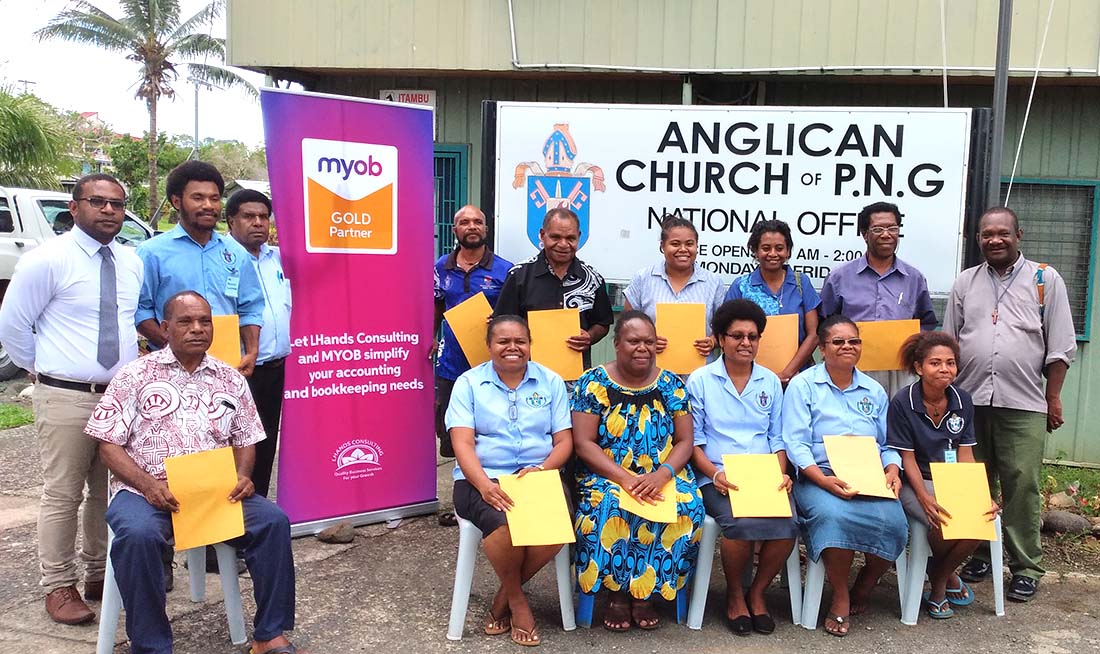AID’s local church partners play a crucial role in addressing poverty and injustice around the world. When AID helps them to build their systems, skills, and networks, we are helping them to do more effective work.
The three main themes of institution-strengthening in FY 2020/21 were: Finance Management, Safeguarding children and vulnerable adults, and Monitoring & Evaluation.
Finance Management
In the Philippines, AID supported trainings for ECARE staff on financial literacy, risk management, entrepreneurship and coffee farming. Staff not only used this knowledge to improve ECARE’s financial management but also passed on some of this knowledge to community-based groups. In fact, when COVID-related travel restrictions were imposed on parts of the Philippines, ECARE staff continued to pass on financial management advice to community-based groups via mobile phone.
In Zambia, AID in 2021 supported ZACOP to purchased PASTEL accounting software and to train staff to use the software. ZACOP subsequently reported that PASTEL accounting software had been adopted in the National Office and in one of its diocesan offices, and staff have been using it effectively. This has meant ZACOP can much better manage the tracking of their funds between the National Office and the various dioceses in which they provide vital projects for local communities.
In Papua New Guinea, the Anglican Church provided training in a different accounting software – MYOB.
Safeguarding children and vulnerable adults
Our church partners are keen to ensure their projects help keep children and vulnerable adults safe. AID in 2021 led safeguarding trainings for seven of our church partners, across Africa, Asia, and the Pacific. Due to COVID-related travel restrictions, these trainings were all online. Church partners followed up in various ways. In PNG and Zambia, partner staff at national level gained sufficient confidence to roll out similar trainings at diocesan level, raising the awareness of diocesan staff about risks to children and vulnerable adults and how these risks can be managed. In Kenya, ADSE in Kenya developed its own PSEAH policy and reviewed its codes of conduct and complaints processes.
Monitoring & Evaluation
To report knowledgeably to AID and other project stakeholders, and to identify and address problems, our church partners need to conduct effective Monitoring & Evaluation.
In 2021, AID supported workshops for ADSE in Kenya about data collection, data quality audits and planning for a new database. AID also held discussions with Anglicare PNG and ACOM Vanuatu about using Kobo Toolbox, a kind of data collection software that allows data to be collected electronically in remote communities then easily uploaded and collated later when internet access is available. In terms of follow up, ADSE in 2022 is continuing to fine tune its new database ready for a new phase of its Livelihood Improvement Program. ACOM in Vanuatu used Kobo Toolbox software for collecting data on Pentecost Island.
Effectiveness of Institution Strengthening
AID is not claiming that we are able to support ALL the institution strengthening needs of our church partners, or that all institution strengthening initiatives go perfectly smoothly. One key challenge faced in FY 2020/21 was that COVID restrictions often made it difficult for people to gather, so many institution strengthening exercises moved to online and partners’ normal work schedules were disrupted when staff fell ill or were forced to isolate. Another key challenge lay in partners’ own ability to organise follow-up of institution strengthening activities and to systematically track the follow-up.
AID will continue to help church partners to learn new skills and strengthen their systems and networks. We will continue to base our support around needs that the partners themselves have identified, thereby increasing the likelihood that new skills, systems and networks will be useful. It is through strong church partners that we can best address poverty and injustice around the world.
Many AID projects are partly funded by Australian Aid.
